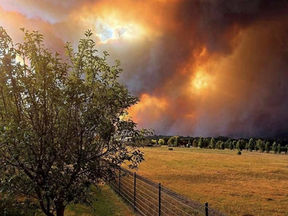Record Flu Hits Australia Before Winter: What's Driving the Surge?
- admin928749
- May 23, 2025
- 2 min read

Australia is being hit hard by a wave of respiratory illnesses, and the flu is leading the charge. In fact, we’ve seen record-breaking inter-seasonal flu numbers since the start of the year — way before the typical winter peak.
But surprisingly, the flu still flies under the radar.
“It’s the underdog of infectious diseases,” says Prof Julie Leask from the University of Sydney.“People don’t take it seriously enough, and that’s a big reason why vaccination rates remain low.”
How many cases are we talking about?
As of this week, Australia has recorded 83,402 flu cases in 2025 — that’s over 10,000 more than this time last year.
And it’s not just the flu circulating. So far this year, we’ve also seen:
67,141 COVID-19 cases
52,611 cases of RSV (a virus that targets the lungs, especially in young kids and older adults)
According to infectious diseases expert Prof Paul Griffin from the University of Queensland, this is the highest number of flu cases ever recorded in Australia outside of the winter months.
“Flu numbers in January, February, March, and April this year are well above anything we’ve seen in the past five years,” Griffin says.
What does this mean for the winter flu season?
That’s the big question — and the answer isn’t clear yet.
“We don’t know exactly what the rest of the season will look like,” Griffin says.“But we already know this surge, combined with low vaccination rates, means the flu is having a bigger impact than it should.”
So, how are the vaccination rates looking?
In short: not great. Despite the clear risk, flu shot uptake remains low across all age groups, especially among kids.
Here’s a quick look at the numbers:
Only 11.7% of children aged 6 months to 5 years have been vaccinated — and they’re among the most vulnerable.
Just 7.6% of kids aged 5–15 have had the jab.
Among adults:
12.8% of 15–50 year olds
21.2% of 50–65 year olds
Only 46.9% of those over 65 (despite being a high-risk group)
What can you do to protect yourself?
Griffin says it loud and clear: get vaccinated.
“With flu numbers this high, vaccination is our best defence — and uptake is nowhere near where it needs to be.”
Leask adds that the key is to build the habit. People who get vaccinated one year are much more likely to continue the habit every year after that. She says healthcare workers can play a big role by starting those conversations early.
And beyond the shot? Griffin recommends:
Good hand hygiene
Using air purifiers
Wearing a mask, especially if you’re high-risk or in crowded indoor spaces
This year’s flu season is off to a roaring (and early) start. The best thing you can do? Book that flu shot, encourage your loved ones to do the same, and take those simple extra steps to stay healthy.
Stay tuned with Aus News Lanka – the leading platform for news for Australians.






































Comments